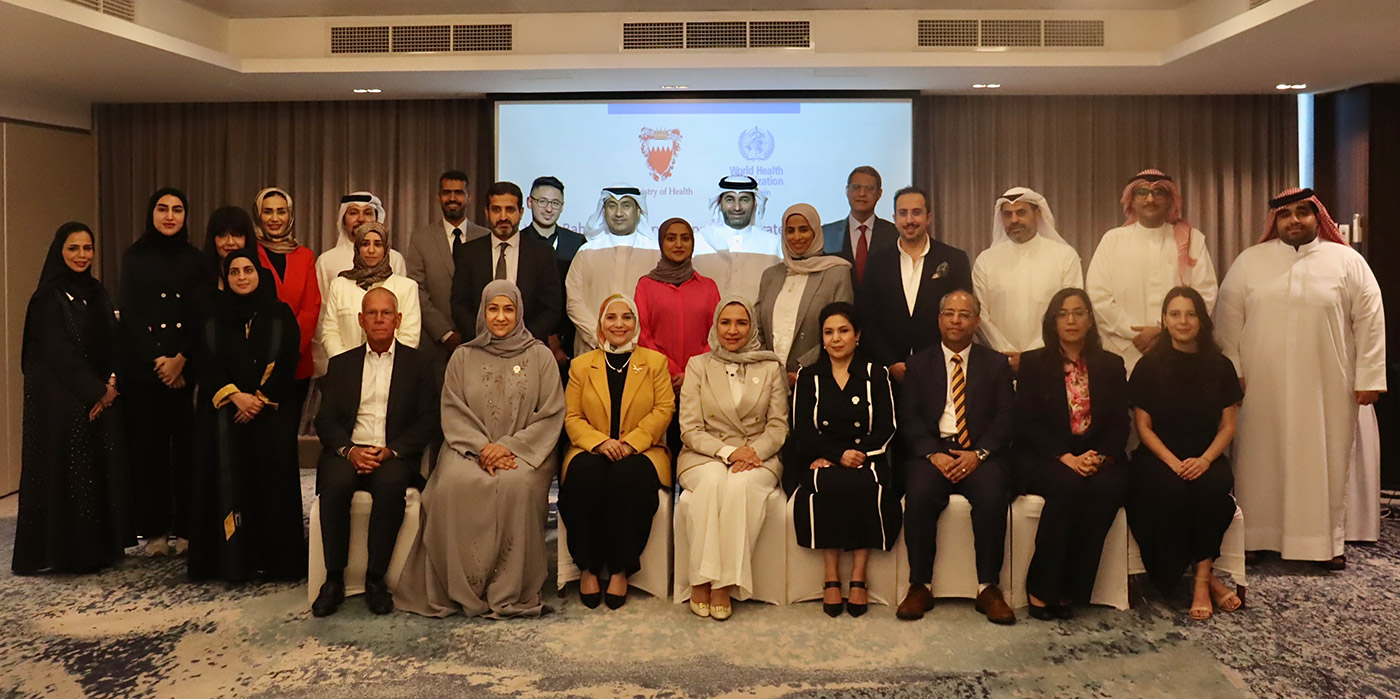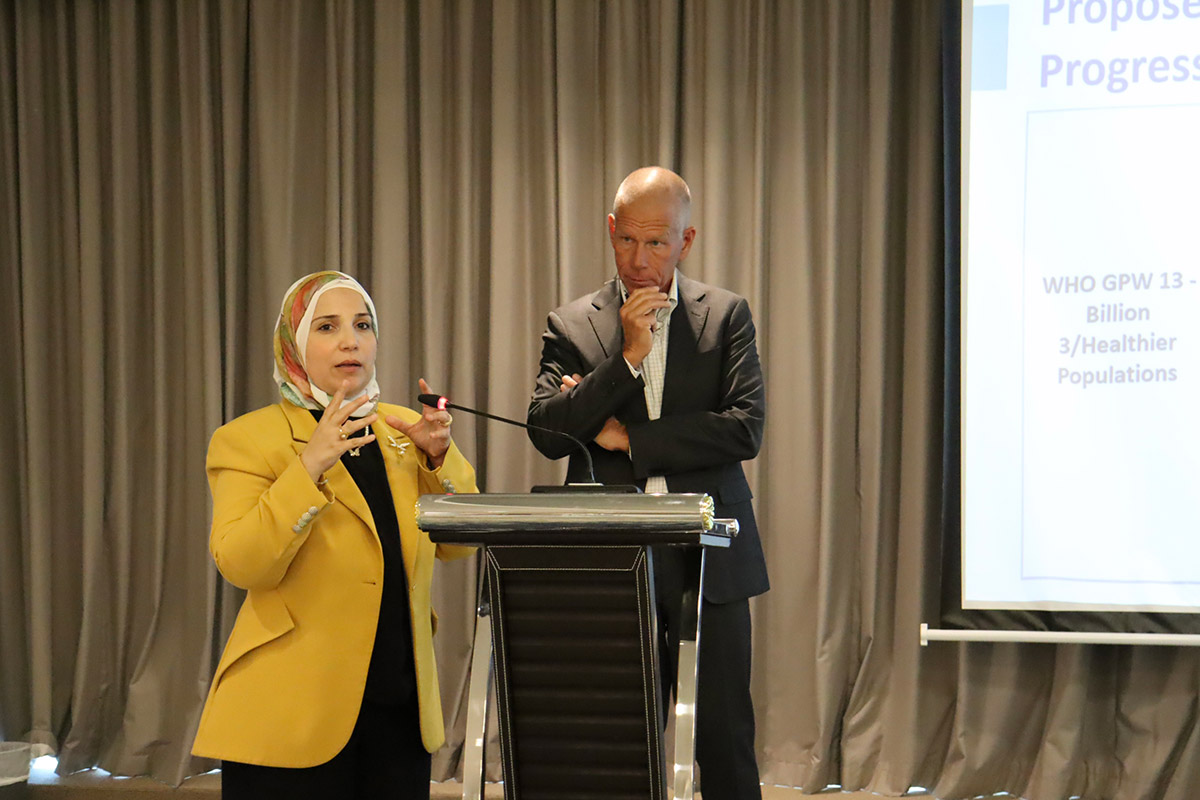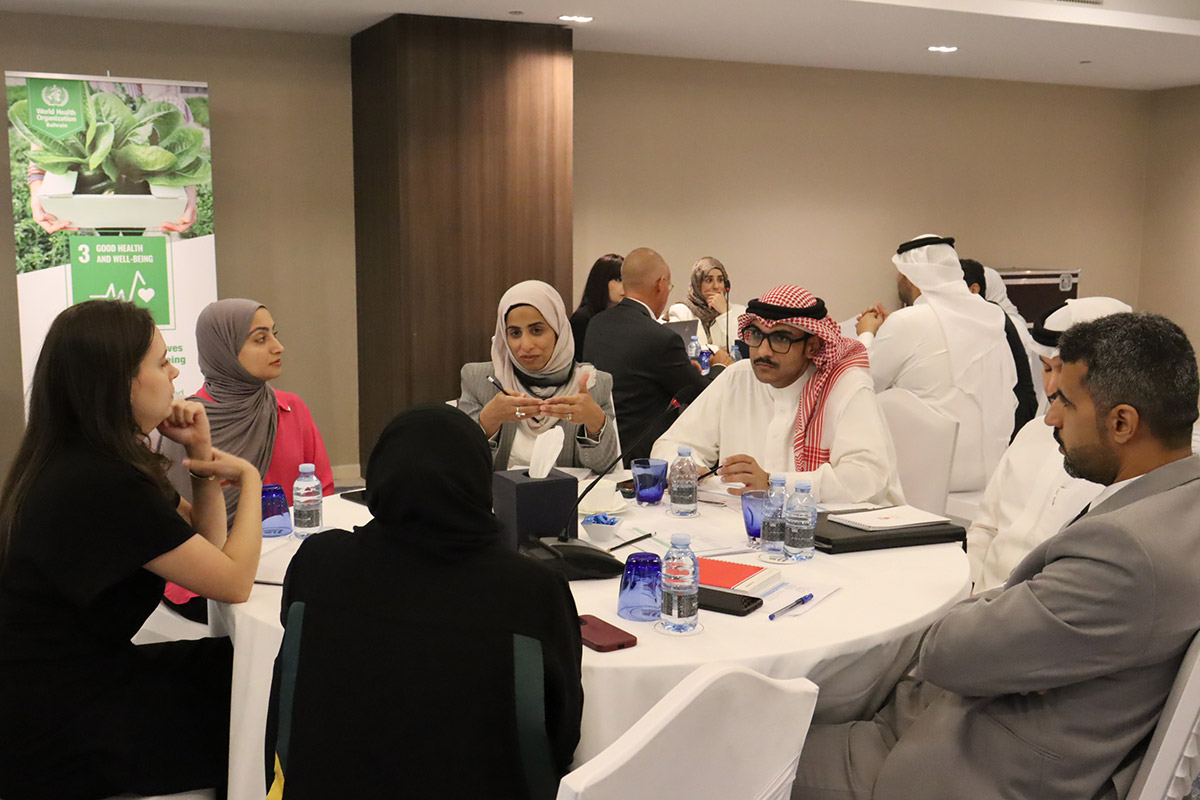 Participants at the consensus building workshop on the WHO-Bahrain Country Cooperation Strategy. Photo credit: WHO/WHO Bahrain24 September 2024, Manama, Bahrain – The WHO Country Office, in collaboration with the Ministry of Health, organized a consensus-building workshop on the WHO-Bahrain Country Cooperation Strategy 2024–2026.
Participants at the consensus building workshop on the WHO-Bahrain Country Cooperation Strategy. Photo credit: WHO/WHO Bahrain24 September 2024, Manama, Bahrain – The WHO Country Office, in collaboration with the Ministry of Health, organized a consensus-building workshop on the WHO-Bahrain Country Cooperation Strategy 2024–2026.
The 19 September workshop addressed ways to strengthen cooperation between WHO and Bahrain in mutually agreed priority areas, guided by national health priorities, the Sustainable Development Agenda 2030 and WHO’s General Programme of Work.
Assistant Undersecretary for Public Health H.E. Dr Samya Ali Bahram and WHO Representative in Bahrain Dr Tasnim Atatrah inaugurated the workshop.
“WHO and Bahrain have a long-standing and trusting partnership which has played a pivotal role in promoting a quality, resilient and equitable health system,” said Dr Atatrah.
“The strategy we are discussing today is an important step to take our partnership to the next level. It is an opportune moment to demonstrate our growing cooperation and partnership ahead of the Seventy-first session of the WHO Regional Committee for the Eastern Mediterranean in October 2024.”
 Dr Tasnim Atatrah, WHO Representative, elaborates on the importance of the country cooperation strategy. Photo credit: WHO/WHO Bahrain
Dr Tasnim Atatrah, WHO Representative, elaborates on the importance of the country cooperation strategy. Photo credit: WHO/WHO Bahrain
The workshop brought together government officials from the health sector, including the Ministry of Health, Primary Healthcare Centres, and Government Hospitals, and representatives from the Supreme Council of Environment and the Ministry of Social Development, Ministry of Foreign Affairs and Ministry of Sustainable Development.
The workshop was delivered by WHO experts and provided a platform to examine the contributions of partners and stakeholders to building a healthier future for all people in Bahrain.
 Participants at the consensus building workshop engage in group work activities. Photo credit: WHO/WHO BahrainParticipants engaged in group work sessions to discuss and build consensus on key joint priorities for cooperation, in line with the Government Plan 2023–2026. The sessions identified a number of priority areas for WHO support. They include:
Participants at the consensus building workshop engage in group work activities. Photo credit: WHO/WHO BahrainParticipants engaged in group work sessions to discuss and build consensus on key joint priorities for cooperation, in line with the Government Plan 2023–2026. The sessions identified a number of priority areas for WHO support. They include:
promoting health through transformative action on environmental challenges and the social determinants of health;
expanding coverage of essential health services to achieve universal health coverage;
protecting health by taking action to strengthen health emergency prevention, preparedness, response and resilience;
reinforcing the use of evidence and translating it into interventions and national decision-making; and
strengthening health diplomacy, collaboration and partnership, advocacy and strategic communications.
The workshop followed on from the Ministry of Health and WHO Bahrain strategic and operational planning workshop, held on 15–16 November 2023 to foster a participatory dialogue on WHO’s technical cooperation with Bahrain and reflect on joint work plan activities for 2022–2023.
Moving forward, WHO and Bahrain will continue to work closely to strengthen their strategic partnership and improve health outcomes for all.




